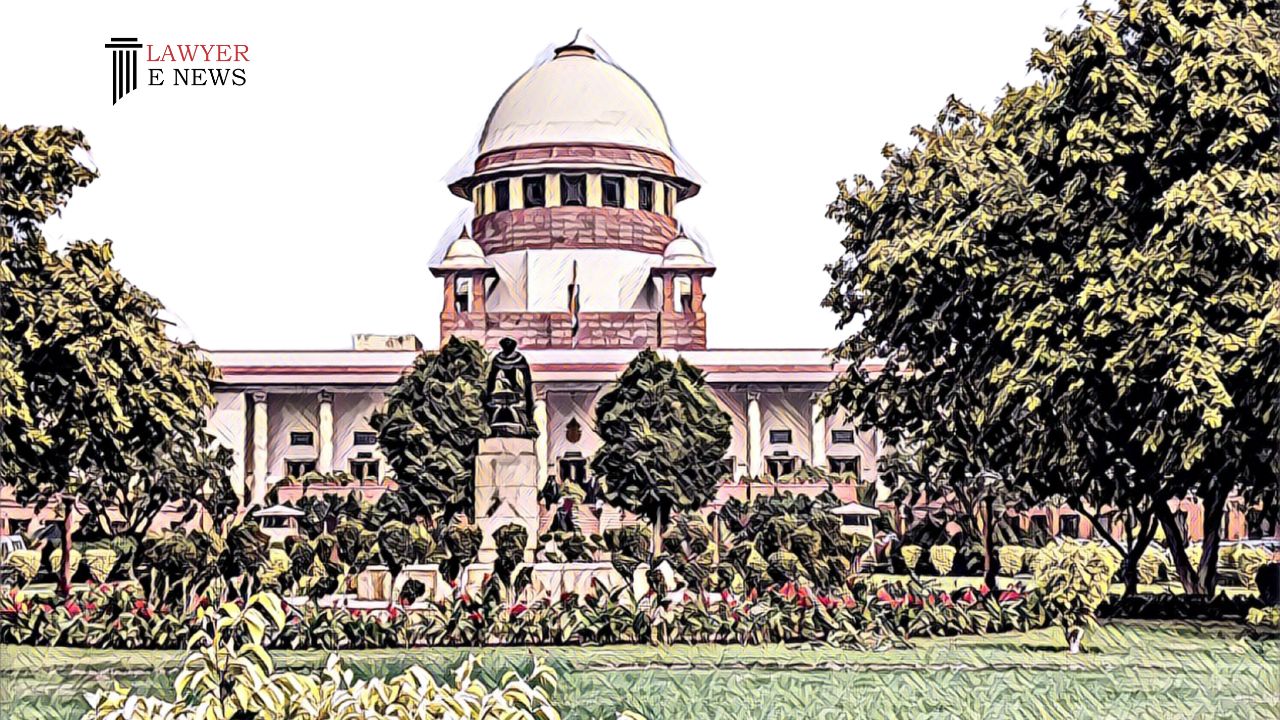-
by sayum
14 February 2026 2:22 PM



High Court's decision to reduce refundable amount to ₹3 Lakhs from ₹18 Lakhs upheld by Supreme Court, emphasizing necessity of concrete evidence in financial claims.
The Supreme Court has upheld the High Court of Kerala's decision to modify the trial court's decree in a suit for specific performance of a property sale agreement. The bench, comprising Justices Vikram Nath and Prashant Kumar Mishra, affirmed that the plaintiff is entitled to recover only ₹3,00,000/- with 12% interest per annum from the defendant, rejecting claims of an additional ₹15,00,000/- paid by the plaintiff due to lack of corroborative evidence.
The plaintiff, R. Radhakrishna Prasad, entered into an agreement on March 26, 1998, with the defendant, Swaminathan, to purchase property valued at ₹30,00,000/-. An advance payment of ₹3,00,000/- was made, with further payments amounting to ₹15,00,000/- intended to clear the defendant's liabilities with a bank. However, the defendant failed to execute the sale deed, prompting the plaintiff to seek specific performance or, alternatively, a refund of ₹18,00,000/-. The trial court granted the refund but the High Court modified this amount to ₹3,00,000/-, which the Supreme Court has now upheld.
The Supreme Court focused on the lack of corroborative evidence for the alleged additional payment of ₹15,00,000/-. While the initial payment of ₹3,00,000/- was substantiated by witness testimonies and documentation, the additional payment lacked similar support. The High Court and Supreme Court both noted inconsistencies and the absence of stamp receipts or mentions in the plaintiff’s initial legal notices, which undermined the credibility of this claim.
The plaintiff’s reliance on his own testimony without corroboration was deemed insufficient. The High Court pointed out that significant payments typically involve clear documentation and receipts, which were notably absent in this case. The signature sequence on the agreement endorsement further raised doubts about the authenticity of the additional payment claims.
The courts adhered to principles under the Specific Relief Act, 1963, especially Section 20, which grants discretion in decreeing specific performance. Given the higher market value of the property and the substantial discrepancy in the claimed additional payments, the courts found the plaintiff's case for an additional ₹15,00,000/- unconvincing. Consequently, the decree was limited to the provable amount of ₹3,00,000/-.
Justice Prashant Kumar Mishra emphasized, "The plaintiff's statement in court, without any further corroboration, is not believable and the High Court has rightly found that the case of the plaintiff as to the subsequent payment of ₹15,00,000/- is not established by positive evidence."
The Supreme Court's decision underscores the importance of clear and corroborative evidence in claims involving substantial financial transactions. This judgment reinforces the judiciary’s stance on scrutinizing the credibility of claims and documentation in specific performance suits. By affirming the High Court's findings, the Supreme Court has set a precedent for future cases, highlighting the necessity for meticulous evidence in property sale agreements.
Date of Decision: July 08, 2024
Radhakrishna Prasad vs. Swaminathan & Anr.
